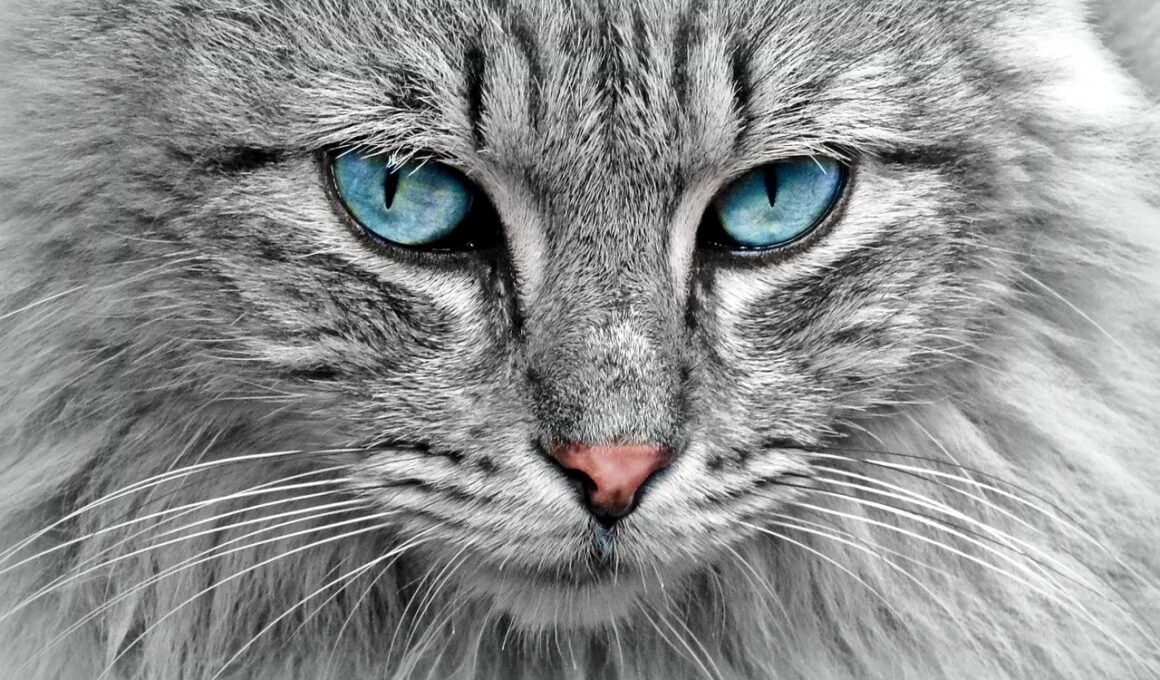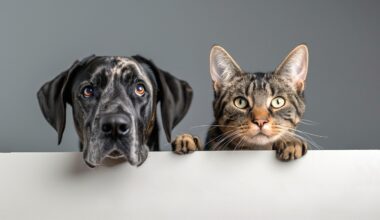Veterinary Advice for Senior Cats Before a Show
Preparing a senior cat for a show requires careful thought and consideration. A visit to the veterinarian can help identify any health issues and establish a proper condition your pet should be in. Senior cats may face several challenges, like dental problems, arthritis, or vision issues, which could affect their performance. Ensure your cat is up to date with vaccinations and has a thorough wellness check. Discuss any unique behavioral trends observed at home, including changes in appetite or activity levels, with your vet. Moreover, ask about necessary dietary adjustments for seniors. Proper nutrition plays a vital role in maintaining energy levels, coat quality, and overall health. It may also require specialized food with more digestible proteins and fewer fillers. Considering a nutrition plan tailored for your senior cat can help address any specific needs. Additionally, inquire about hydration strategies during the show event, as proper moisture intake helps avoid stress and fatigue. Attention to these details can make a significant difference in how your senior cat performs and feels during the show.
Developing a grooming routine is essential for senior cats as part of their show preparation. Older cats may experience changes like reduced mobility that impact their ability to groom themselves effectively. Schedule regular grooming sessions or consider professional grooming to maintain coat health. Use gentle brushes to remove loose fur and dirt, paying special attention to mats which can form easily. Maintaining your cat’s nails is also vital, as long nails can lead to discomfort and complications. Trim nails regularly, and ensure the claws are healthy and neat before the show. Furthermore, check that your cat’s ears and eyes are clean, as these are easy areas to overlook. Clean these areas with vet-recommended solutions, especially before an event. Focus on oral hygiene by introducing teeth cleaning products made for cats. Periodontal disease is common in seniors and affects overall health. Discuss dental cleanings with your veterinarian if there are significant issues. Regular grooming can greatly improve your senior cat’s appearance, enhance show readiness, and contribute positively to their health. A well-groomed cat will likely impress judges and earn respect at the show.
Behavior Management Strategies
Behavior management is another important aspect of preparing a senior cat for a show. As cats age, they may become more anxious or less adaptable to new environments, which is common among show situations. Socialization is crucial for senior cats, so start exposing your pet to various stimuli outside the home environment. Gradually introduce your senior cat to different sounds, smells, and activities to gauge and reduce anxiety. Offering a safe, quiet space for your cat during stressful moments can help them adjust better to the chaos of a show. Use familiar scent items, like their favorite blanket or toy, to comfort them. Furthermore, activities like gentle play can reduce anxiety and provide necessary stimulation before the show. Additionally, consider using calming products such as pheromone diffusers or calming treats designed for cats. This may help reduce stress levels during travel or waiting periods at shows. You may also seek advice from professionals specializing in feline behavior for tailored strategies to manage your senior cat’s behavior effectively. Ultimately, a relaxed, confident cat is more likely to perform well.
Travel Considerations
Traveling comfortably to and from the show can significantly impact your senior cat’s experience. Stress during transportation can lead to anxiety or health issues, so plan your route carefully. Opt for a comfortable, secure carrier that allows your cat to rest easily. Line the carrier with familiar bedding to keep them grounded. It’s important to familiarize your cat with the carrier before the event. Taking short trips leading up to the show can help them adapt to the carrier and reduce anxiety. Additionally, consider factors like transportation time and schedule breaks along the way to check how your cat is adjusting. Offer your cat water periodically to keep them hydrated while traveling. When you arrive, allow time for your senior cat to relax and acclimatize to the new environment. Set the carrier in a quiet area and provide a familiar blanket or bed. Ensuring your cat feels secure in an unfamiliar setting can mitigate stress during the event. Additionally, having a temporary litter box ready upon arrival can help manage your cat’s needs discreetly. Creating a stress-free travel experience enhances your cat’s overall show performance.
Health monitoring during the show is critical, especially for senior cats. Keep an eye on their behavior and physical condition throughout the day. Watch for any signs of distress or discomfort, such as excessive meowing, panting, or hiding. Carry basic health supplies, including water, food, and medicines, that they might need throughout the show. Hydration is crucial, so offer water regularly, even if your cat seems uninterested at times. Determine schedule breaks for your cat to rest away from the noise and bustle of the show activities. Knowing when they are tired can prevent stress and fatigue, which could impact their performance. Communication with the event organizers can also be helpful in understanding the best areas for your cat to rest or take a break away from the crowd. Be prepared to adjust your schedule according to your cat’s needs. Ensure that you keep them stimulated, whether through brief exploration or playing with them in quiet times. Balancing show responsibilities with proper health monitoring will contribute to a positive experience for both you and your senior cat.
Nutrition Before the Show
Nutrition is a key component when preparing a senior cat for a show. A feline’s diet must be both balanced and tailored to an older cat’s needs, focusing on quality over quantity. Consult your vet about suitable food options that provide adequate nutrients while being soft on the digestive system. Older cats often need more digestible proteins and fewer carbohydrates, so pay attention to ingredients that will benefit their health. Consider high-energy treats before the show to boost energy levels throughout the day. These treats should be given moderately to avoid upsets on the day of the event. Furthermore, ensure that your cat has access to fresh water at all times, as dehydration can lead to fatigue. Take steps to transition your cat to any new food gradually, as sudden dietary changes can cause gastrointestinal issues. Watch for any reactions or allergies that might arise from new food. A well-fed cat is more comfortable and ready to compete. Additionally, note any preferences your cat shows regarding flavors or textures that they enjoy to keep their spirits high during the show.
Post-show care is just as essential for senior cats after the event. Cats tend to experience a mix of emotions following a show, including excitement or stress. Provide a quiet environment at home so they can unwind. Settle your cat in a familiar and peaceful area with their favorite items nearby. Check for any signs of stress or discomfort and provide reassurance through gentle affection and attention. Consistent interactions after the event can help diminish post-show anxiety. Reward your cat with their favorite treats to reinforce positive associations with the show experience. Regular grooming sessions after the show can help re-establish routines and maintain a bond. Additionally, schedule a follow-up visit with the veterinarian to ensure your cat isn’t experiencing any harm from the day. Provide updates on their performance and wellbeing during the event, especially if any issues were noted. Careful support after the show can significantly affect your cat’s overall confidence in participating in future events. Remember that a happy cat is likely to thrive in the competitive show atmosphere, so ongoing support and love are necessary for a good transition home.
Conclusion
Preparing a senior cat for a show involves multiple considerations, from health checks and grooming to behavior management. Interested cat owners should consult with veterinarians regarding specific needs and dietary information. Behavior management strategies should be adopted early, introducing gradual adjustments to various environments to minimize stress. Attention to travel comfort will aid your senior cat’s experience, ensuring a smooth transition to and from events. Moreover, proper nutrition, hydration, and monitoring during shows keep your cat healthy and energized throughout. Providing post-show care allows for recovery after the buzz of the competition, reinforcing positive experiences. Ultimately, the love and attention you give your senior cat will reflect in their behavior, health, and overall enjoyment of show participation. This commitment fosters a deeper bond and ensures your senior cat’s well-being, allowing them to thrive in their show career. Keeping all these factors in mind aids owners in preparing their beloved pets for a better show experience, making each event enjoyable and memorable. With the right approach, both you and your senior cat can be stars during the show. Good luck in your preparations and enjoy every moment together!


